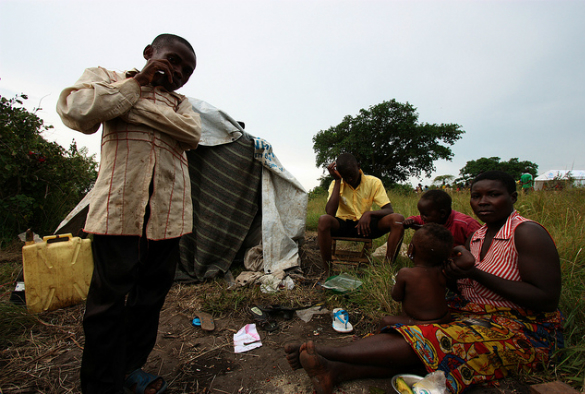
The University of Liverpool is leading a new £1 million research project to better understand the mental health challenges facing refugees in developing countries.
Dr Ross White from the University’s Department of Psychological Sciences will lead a multidisciplinary Liverpool team to investigate a community-based form of psychosocial support for Congolese refugee communities in Uganda and Rwanda.
Community-based sociotherapy is an approach that was developed to support conflict transformation and community healing in post-Genocide Rwanda. The research will aim to culturally and linguistically adapt this type of therapy for use with Congolese refugees, and will evaluate its efficacy and cost-effectiveness. If the intervention is shown to be effective, the research team will work with the United Nations High Commissioner for Refugees (a partner organisation in the project) to disseminate the approach into diverse humanitarian settings.
The research is being funded by the Economic and Social Research Council (ESRC) and the Arts and Humanities Research Council (AHRC). It’s one of seven new projects announced today on World Mental Health Day as part of the ‘Global Challenges Research Fund (GCRF) New social and cultural insights into mental, neurological and substance use disorders in developing countries’ call.
Dr White said: “We are hugely excited to receive the funding to support this important work. The African continent is home to the largest number of refugees who have been displaced from their home countries. It is vitally important that we find culturally sensitive, community-based and scalable ways of supporting their mental health and wellbeing.”
Edward Harcourt, AHRC Director of Research, said: “The diverse array of research projects funded under this call reflect some of the big issues of our age. There is an urgent need to better understand the specific mental health challenges that face developing countries, and arts and humanities researchers working alongside social scientists can play an important part in tackling them.”
The University of Liverpool team will work alongside collaborators at the University of Rwanda and Makerere University in Uganda to carry out the project over the next 2.5 years.